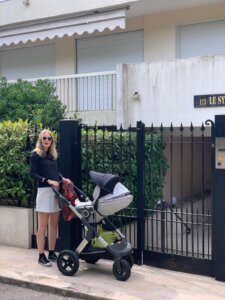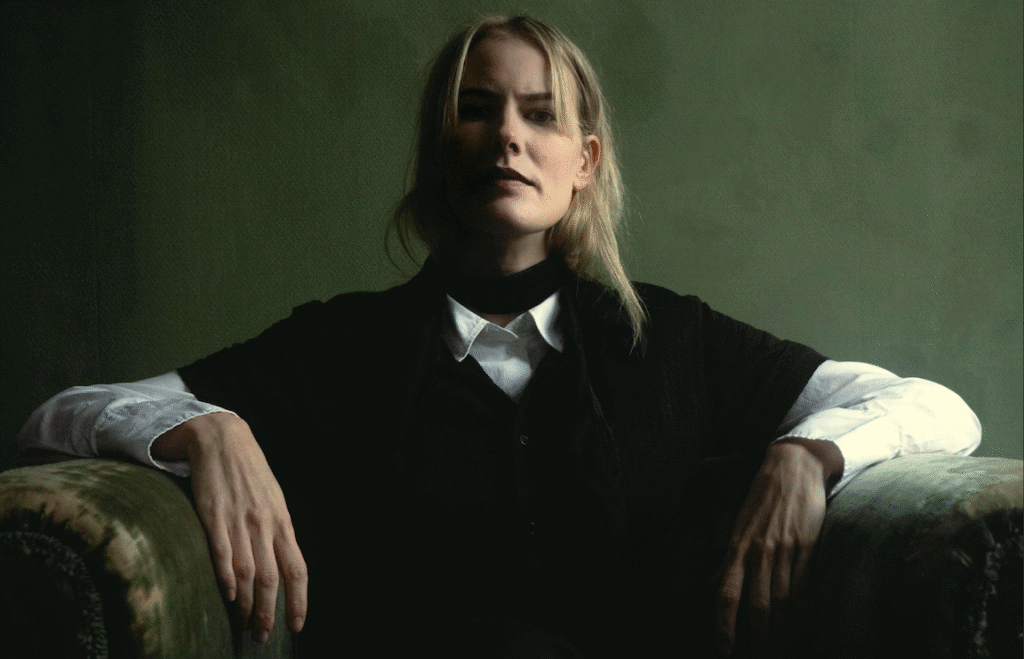I’m Rewriting My Setlist: Making Space for Motherhood
I knew I wanted to have children ever since I was a child myself. Being a self-employed artist, making alternative music, the income is unpredictable and really low. I’ve been putting a crazy amount of time into the work, and in periods I could find myself working for 12 hours with no real break, for days. The baby’s father is a contemporary artist, but is also teaching art film on the side. For years, I was saying how important it was to me that we have a more steady and higher income, and be done with the unhealthy work habits, before I wanted to have a baby.
Eventually, I found a more balanced work situation, but the income didn’t seem to change. One day, we realized this might not even happen for a decade. At the same time, we also realized that we would have so many other important things to offer, and that we were in a special position where we could give this child a lot of other experiences and adventures that could make up for things we could not offer. We also realized we could see this child more on the weekdays than an average employee, because of our flexible work hours. And because I am lucky to be able to do what gives me the biggest joy and pleasure, full time, the potential child could get to know a fulfilled and content mum, rather than what I could turn into if I had to change my career. We also knew that we would save a lot of money because we were planning to get everything second-hand, and that we would get to borrow stuff from friends with older kids. Suddenly, we felt ready.
I’ve never had a lack of ideas or inspirations when it comes to making music, until I got pregnant. It kind of felt like, because there was a human being created inside of me, I couldn’t create much externally. Luckily, I was doing other aspects around my music; mixing my album, release preparations, applications, and so on. I did, however, have one creative task with a deadline. Because of a funding for a collaborative project with Oslo Oriental Orchestra, I was supposed to write lyrics about how one can feel different and alienated in Norway if someone is either not feeling like they belong, or if someone has immigrated, because of the homogeneous population, and the Norwegian mentality and conformity. Even though I had previously had so many thoughts about this theme, suddenly all I could think about was the baby that would soon arrive. After a short period of writer’s block, I decided I would rather write texts to this baby, as he would also be new to this whole Norwegian society. But with the intent that it would still fit the project description. I think it worked. Luckily, I quickly felt creative again after giving birth.
I always need to write about the things that take up space in my mind, something I need to process further, either something going on inside me or in society. Half a year or so into the new life, I suddenly had a lot to process.
When we give birth, we’re either fed or at least have access to a crazy amount of information about babies’ development and how to take care of them. There’s no lack of information about the physical development around pregnancy, either. What I didn’t get any information about at all is the transitional period and the development of suddenly becoming a mother.
The psychological metamorphosis we go through in the first year can be compared to a teenager’s puberty. All the hormones, the changes to your identity, the potential emotional rollercoaster, the changes to the brain, all the changes to the body, and the social and cultural expectations, and so on. Personally, it feels like it’s expected of me to be a superhuman; I should be a perfect mum, but careful not to be way too perfect, and I should also be social, and should also keep up with my work.
I think I found myself at my most vulnerable, emotional, and confused when I started working more again, not just while Lyder, my son, slept.
I’d never felt like this before, and I didn’t understand what was going on. I didn’t understand that this was just part of the psychological changes; a mix of all the aspects mentioned above. There was such a strong feeling of ambivalence: wanting to be with him constantly, but also the need to get back to my work, making music, and to make a living, and to feel a bit more like myself again. And the lack of social life, which is also important and healthy. I knew Lyder was feeling safe with his dad. But this whole situation of ambivalence made me feel an emotional rollercoaster I’d never felt before.
Luckily, I met a stranger at a birthday party who’d just become a mother herself. She explained to me what was going on, and told me about a book focusing on the mother and these themes: Matrescence: On the Metamorphosis of Pregnancy, Childbirth and Motherhood, by Lucy Jones. This was such a relief, even before reading the book. Because to me, everything is so much easier to handle as long as I know why.
Now this was the new topic on my mind that needed processing through songwriting, next to the overwhelming warm feelings for Lyder. Before he was born, I had a plan to continue my artistry without too many traces of becoming a mum. I also thought I’d go on a small tour the first year, with or without him – which I suddenly found mentally impossible after he was born. The idea was to show the old-fashioned and conservative part of the world that there’s no difference between a male or female artist with a newborn. But now, here I am; tour postponed and I’m suddenly more of a mum than a rockstar. And now the lyrics I’ve started to write for a new album are mostly about this first year of being a parent. Well, after years of writing a lot of something that can sound like a social commentary, the last couple of years I’m now trying to write my songs to be more universal or poetic, so that even though some lyrics means something very specific to me, I want them to become whatever the listener need my music for. Because of the frightening time we live in right now.
So, I failed the plan I had for my first year as a mum and an artist. But it’s been a good year. I hope I will succeed in the ideas I have for the upcoming years. I want to continue to write, produce, mix, and release music full-time (even though it can’t cover Lyder’s potential wish for an iPhone xxxxxx), and to introduce Lyder to the world of music, and for Lyder to realize how hip his mum is. And to be the safest harbor he could ever have. I want a steady and growing career, but I also want to have time to be the coach of Lyder’s potential soccer team.
– Wish me good luck.

ABOUT TUVABAND
Over the past seven years, Tuvaband has established a globally respected body of work, comprising four albums, two EPs, and a boundary-defying collaboration with the experimental supergroup New Age Doom. Her releases have drawn praise from Pitchfork, Earmilk, Wonderland, Under the Radar, Rolling Stone Germany, and Musikexpress. In the words of Pitchfork, Tuva’s voice is “the most captivating and commanding instrument” in her arsenal.
Her unique sonic signature—at once ethereal, gritty, and deeply human—has earned her significant international radio play, with support from NRK P3 and P13 (Norway), FluxFM and ByteFM (Germany), and rotation across 21 German stations including Deutschlandfunk Kultur.
More than just a musician, Tuva is a world-builder. Every Tuvaband release emerges from a deeply personal, hands-on process: she writes the songs, plays nearly all the instruments, engineers the recordings, and releases everything through her own label. Her work is both solitary and cinematic—an echo of the internal landscapes she invites listeners to explore.
Listen on Spotify
RELATED ARTICLES
- Interview With Carley Shimkus
- Tara Beier – Childbirth & Transformation
- Taylor Riggs – Marathons, Pilates and Pregnancy
RELATED PODCASTS
Cover Photo by Daniel Almás

